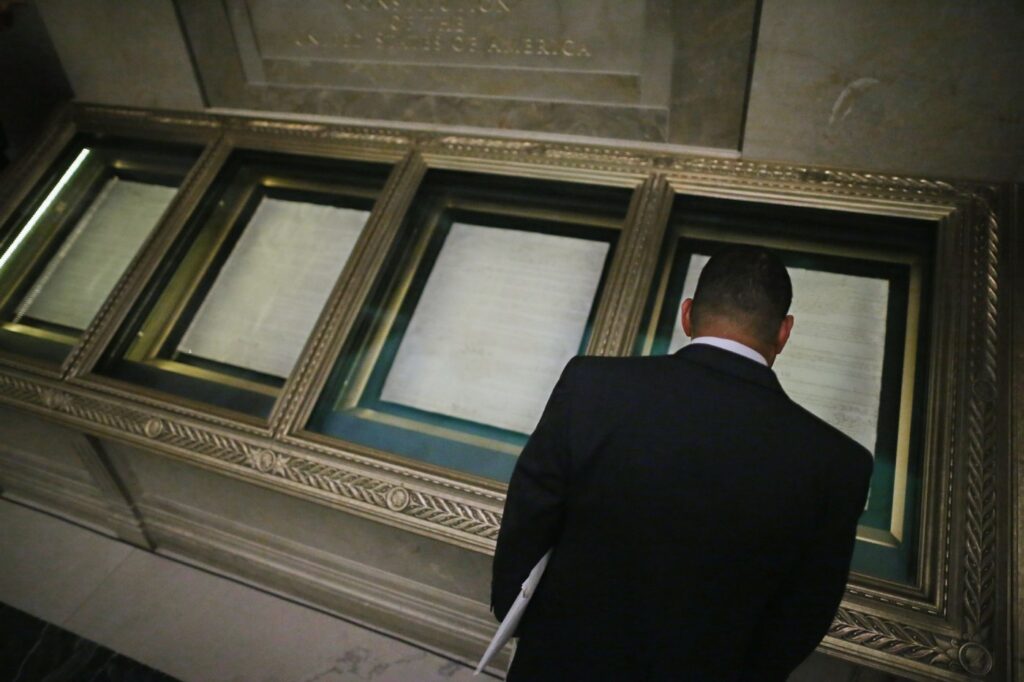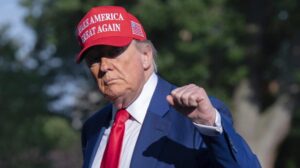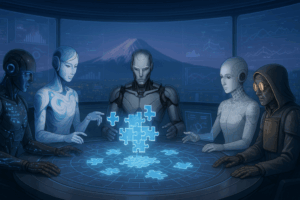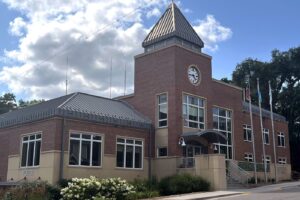
Every July Fourth, Americans gather to celebrate with fireworks, picnics, and parades, marking the anniversary of the nation’s independence. Yet, beyond the festivities lies a profound narrative of unfinished work and a call to uphold the promises embedded in the nation’s founding documents. July Fourth is not just a commemoration of America’s birth; it serves as a poignant reminder of the enduring journey to realize the ideals set forth by the Founding Fathers.
The date is forever linked to the Declaration of Independence, a document crafted by Thomas Jefferson and ratified on July 4, 1776. It signified the colonies’ decision to sever political ties with Great Britain. However, July 4th also holds additional historical significance. On the 50th anniversary of the Declaration, both Thomas Jefferson and John Adams, pivotal figures in American history, passed away. Their deaths on this symbolic date underscore the deep connection between their lives and the nation’s identity.
The Legacy of Founding Ideals
As a young American, I memorized the opening lines of Jefferson’s Declaration and Lincoln’s Gettysburg Address. Initially, it was an exercise in rote learning, but over time, these words have taken on a deeper resonance. They remind us of our responsibilities as citizens and the ongoing work to uphold the nation’s founding principles. Jefferson’s assertion that “all men are created equal” with unalienable rights to “life, liberty, and the pursuit of happiness” was revolutionary, though aspirational. In 1776, many were excluded from these promises, yet the idea took root and has guided Americans for nearly 250 years.
Abraham Lincoln revisited these ideals during the Civil War, notably at Gettysburg, where he questioned whether a nation “conceived in liberty and dedicated to the proposition that all men are created equal” could endure. Lincoln’s words at Gettysburg were not just a reflection on a military conflict but a challenge to ensure the survival of the American experiment.
Challenges in Modern Leadership
Throughout history, America has been blessed with leaders who have renewed the national spirit. In the latter half of the 20th century, figures like John F. Kennedy, Martin Luther King Jr., and Ronald Reagan inspired Americans to aspire to higher ideals and shared responsibilities. Their messages continue to resonate today. However, in the current century, such leadership seems increasingly elusive. Today’s political discourse often appears bitter and divisive, lacking the compromise essential for a functioning democracy.
“A functioning democracy requires compromise, but compromise has grown rare.”
If we lose the ability to listen, reason, and find common ground, we risk losing the legacy built by past generations. This is not fearmongering; it is a historical reality and a genuine threat to the democracy we have inherited. It is our responsibility to prevent its decline.
Looking Beyond the Celebrations
This year, as we celebrate July Fourth, it is crucial to look beyond the fireworks and revisit the Declaration of Independence and the Gettysburg Address, not as historical relics but as roadmaps for the future. We are not the Founders; we are the stewards of their legacy. We have inherited something precious and have a duty to strengthen and pass it on in better shape than we found it.
The question now is whether we will rise above anger and division, find the courage to compromise, and fulfill our part in this ongoing journey. This is our moment, our watch, and history, along with future generations, will judge our actions.
This opinion piece is contributed by Jim Ludlow, executive producer of the Good Government Show Podcast and founder of the Good Government Institute, a nonprofit dedicated to fostering ethical leadership and civic engagement. The views expressed are those of the author and do not necessarily reflect the views of this publication.






